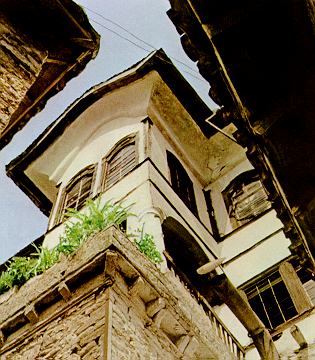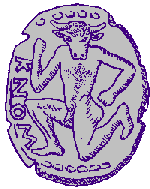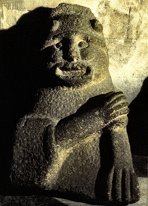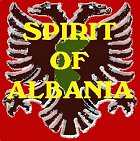POVERTY
translated by Anthony Weir
Poverty, my friends, is a morsel hard to swallow,
a bite that sticks in your throat and makes you wretched,
as you look at its pale faces, rheumy eyes
watching you like ghosts, holding out emaciated hands.
Behind you they lie, prostrate their whole lives through
until their bleak demise, while
high above them, haughty crosses
and hard stone minarets pierce the sky,
prophets and polychrome saints look down.
And poverty feels even more diminished and betrayed.
Poverty carries
its Mark of Cain,
hideous, repulsive, disgusting.
The brow that bears it, the eyes that show it,
the lips that try in vain to hide it
are the offspring of ignorance, the victims of disdain,
occasional recipients of scraps flung from the table
to rich people's greedy dogs.
Poverty has no luck, just rags
and tattered banners of pale hopes
ripped by broken promises.
Poverty wallows
in desperate debauchery.
In dark corners, with dogs, rats, cats,
on mouldy, stinking, filthy mattresses,
naked breasts exposed, unhealthy, dirty bodies,
prey to sad, debauched desire,
kiss, suck, bite, devour, and flail and beat,
and in releasing lust their thirst is quenched,
the craving stilled, and self-consciousness erased.
This is the source of imbeciles, the servile and the beggars
who will be born to fill the streets tomorrow.
Poverty haunts
eyes of babies,
flickers like a candle-flame
under ceilings black with smoke and dusty spider-webs,
where human shadows shake on damp-stained walls,
where sick infants wail like the damned
to suck dry breasts of wretched mothers
pregnant again, cursing God and Devil,
cursing their unborn children.
These babies never
laugh, just waste away,
unwanted by unwilling mothers.
The cradle of the poor is misery
rocked by the hopeless.
The child of poverty is raised in the foul shadows
of great mansions, too high for the imploring voices
to disturb the peace and quiet of the rich
sleeping in blissful beds.
Poverty hardens
a child early,
teaches it to dodge the threatening fist,
the hand which clutches at its throat in nightmares,
when the delirium of starvation starts
and when death casts its shadow on childish faces,
with hideous grimace.
While the fate of fruit is to mature and fall,
the child is buried undeveloped.
Poverty toils by day and night,
chest and forehead drenched in sweat,
up to the knees in mud and slime,
and empty stomachs racked by hunger.
Starvation wages! For such enforced misery
a few pennies and an 'On your way.'
Poverty sometimes
paints its face,
swollen lips scarlet, hollow cheeks rouged,
and body an item in a filthy trade:
use and abuse for a pittance,
stained sheets, stained face...life just a stain.
The legacy of
poverty is not cash
or heirlooms or property, of course,
but deformed bones, congenital disease,
and stories of a bygone day
when a house collapsed for lack of maintenance,
and the breadwinner screamed from underneath a beam,
'crushed by an angry God', the priest said.
And so ended the life of a feckless fool or an unfortunate.
and such histories fill
the cup of bitterness passed down the generations.
Poverty in drink
seeks consolation,
in filthy taverns, with dirty, littered tables,
thirsting souls pour glass after glass of raki
down their throats to forget their woes -
the dulling glass, the glass satanic,
caressing with a vicious bite.
And when, like grass beneath the scythe, a man falls down
upon the filthy floor, he sobs and giggles, a tragicomic clown.
Poverty sets desires
ablaze while turning them to ashes.
It knows no lightness, only pain,
misery reducing you to such despair
that you steal a rope and hang yourself.
Poverty wants no pity, only justice!
Pity? Bastard daughter of the hypocrites
who drop a penny in the beggar's hands
with calculating ostentation.
"The poor are always with us"
since civilisation began, and they will be with us
until it ends, remaining famine-struck
by doctrines rotting in great temples and grand ministries.

POEMA E
MJERIMIT
Kafshatë
që s'kaperdihet asht, or vlla, mjerimi,
kafshatë që të mbet në fyt edhe të
ze trishtimi,
kur sheh fytyra të zbehta edhe sy të jeshilta
që të shikojnë si hije dhe shtrijne duert e mpita
dhe ashtu të shtrime mbrapa teje mbesin
të tanë jetën e vet derisa të vdesin.
E mbi ta n'ajri, si në qesendi,
therin qiellin kryqet e minaret e ngurta,
profetent dhe shejtënt ne fushqeta të
shumëngjyrta
shkëlqejnë. E mjerimi mirfilli ndien tradhëti.
Mjerimi ka vulën e vet te shëmtueme;
asht e neveritshme, e keqe, e turpshme;
balli që e ka, sytë që e shprehin,
buzët që me kot mundohen ta mshehin-
janë femijët e padijes e flitë e përbuzjes,
të mbetunat e flliqta rreth e përqark tryezës,
mbi të cilën hangri darkën një qen i
pamëshirshem
me bark shekullor, gjithmonë i pangishëm.
Mjerimi s'ka fat. Po ka vetëm zhele,
zhele fund e maje, flamujt e nji shprese
te shkyemë dhe të coptuem me të dalun bese.
. . . . . .
Mjerimi
s'ka gëzim, por ka vetëm dhimba,
dhimba paduruese që të bajnë të çmendesh,
që t'apin litarin të shkojsh fillë e të
varesh
ose bahe fle e njërë paragrafesh.
Mjerimi
s'do mëshire. Por do vetëm të drejtë!
Mëshirë? Bijë bastarde e etenve dinakë,
të cilt në mënyrë pompoze posi farizejt
I bijnë lodertisë me ndjet dhelperak
tue ia lëshue lypsit një grosh të hollë
në shplakë.
Mjerimi
asht një njollë e pashleshme
në ballë të njerëzimit që kalon nepër
shekuj.
Dhe kere njollë kurrë nuk asht e mundshme
ta shlyejnë paçavrat që zunë myk ndër
tempuj.
________
'Migjeni'
- a distorted acronym of Gjergj Millosh Nikolla -
wrote most of his 35 remarkable poems at the end of his short
life.
For more
about him see an excellent history at:
http://www.nationmaster.com/encyclopedia/Millosh-Gjergj-Nikolla







